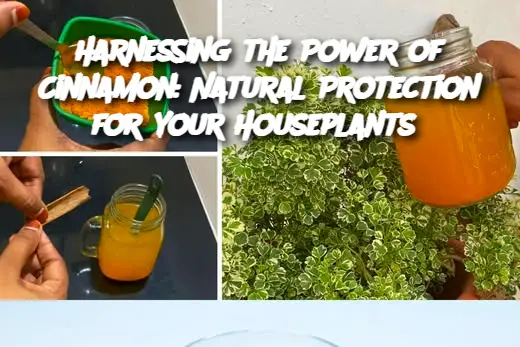ADVERTISEMENT
Cinnamon and Clove Mix: Combine cinnamon with ground cloves to create a stronger insect deterrent. Both spices are known for their pest-repelling properties, and the combination can offer extra protection against pests and mold.
Cinnamon and Garlic Solution: For a more potent homemade pesticide, add a few crushed garlic cloves to the cinnamon and water mix. Garlic enhances the effectiveness of cinnamon in warding off unwanted insects.
FAQ:
Q: How often should I use cinnamon on my plants? A: It’s best to apply cinnamon once every two weeks or after watering. If you notice a mold problem or an increase in pests, you can apply it more frequently, but be cautious not to overdo it.
Q: Is cinnamon safe for all types of plants? A: Cinnamon is generally safe for most houseplants. However, always test it on a small, inconspicuous part of the plant first to ensure there is no negative reaction, especially for more delicate varieties.
Q: Can I use cinnamon on outdoor plants as well? A: Yes, cinnamon can be used for outdoor plants in the same way, but be aware that its effectiveness may vary based on weather conditions. The solution may need more frequent reapplication in outdoor environments.
Q: Does cinnamon kill all types of insects? A: Cinnamon is effective against a variety of pests, including ants, aphids, and spider mites. However, it may not work on all insects, especially larger ones like beetles. For severe infestations, consider using additional methods.
Q: Will cinnamon harm my pets if they come into contact with it? A: While cinnamon is generally safe in small amounts, excessive consumption can be harmful to pets. Ensure that pets do not ingest large amounts of cinnamon. If in doubt, keep plants and cinnamon-treated areas out of reach of pets.
By using cinnamon as a natural remedy, you can create a healthier, pest-free environment for your indoor plants without resorting to harmful chemicals. Happy gardening!
ADVERTISEMENT
